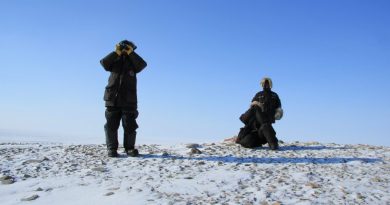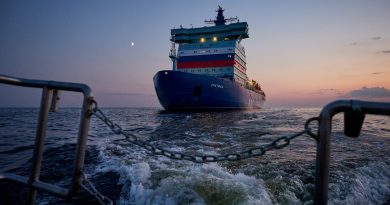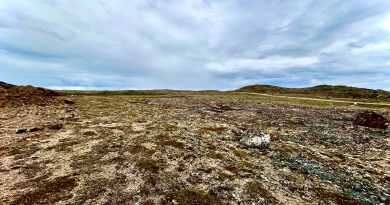Threat of military conflict in the Arctic is ‘relatively low,’ says top Russian diplomat
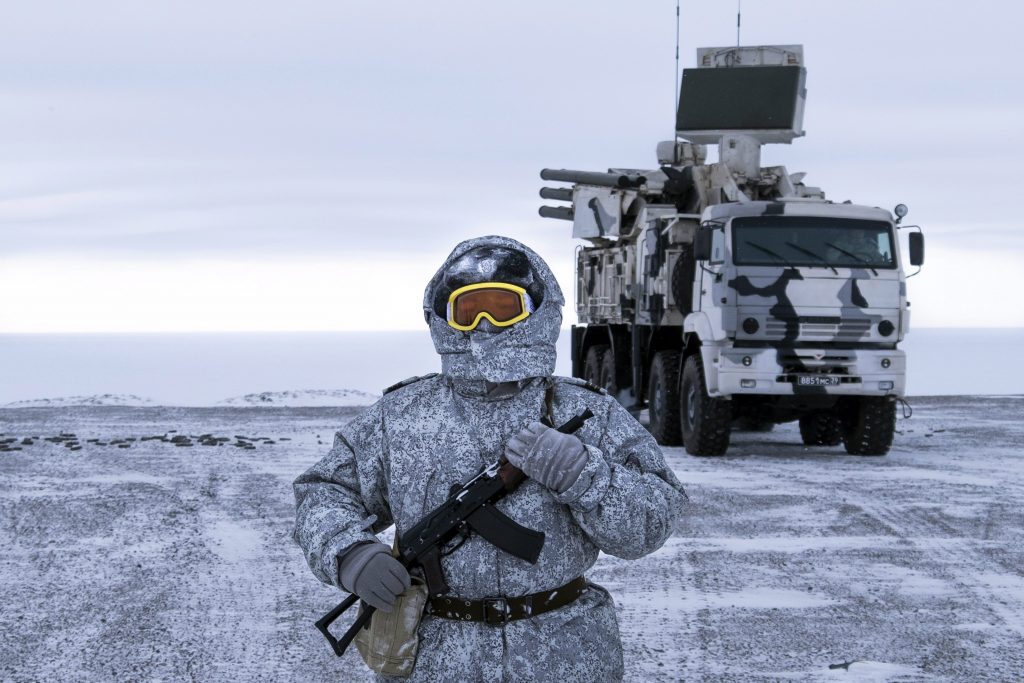
Russian officials believe that the threat of a military confrontation in the Arctic is “relatively low,” says the country’s senior diplomat responsible for Moscow’s Arctic relations.
“There are no problems requiring a military solution in the Arctic. All issues can and must be resolved at the negotiating table,” Nikolay Korchunov, Ambassador at Large and Russia’s Senior Arctic Official (SAO), told RIA Novosti news agency Wednesday.
However, Korchunov also noted Russia’s concern over NATO’s increasing military presence and exercises in the region that often include non-Arctic states.
The weakening of confidence-building measures in the Arctic could throw the world back several decades into another Cold War, Korchunov said.
This “internationalization of military activity in the Arctic” is largely caused by climate change and opportunities for resource extraction and the development of new global transport corridors along the Northern Sea Route as Arctic sea ice continues to retreat, Korchunov said.
“Nevertheless, an analysis of the military activities of the coastal countries allows us to state that no one in the Arctic is preparing for an armed conflict,” Korchunov said.
U.S. gears up for day-to-day competition with Russia and China
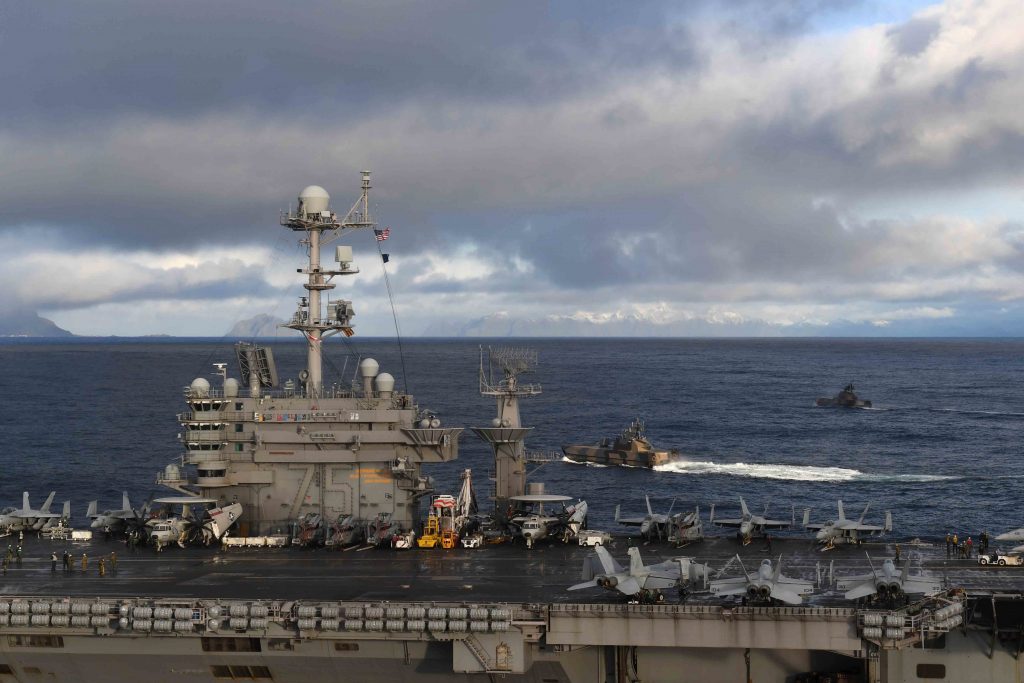
Korchunov’s comments to RIA Novosti came as the United States has released a number of Arctic policy documents over the past few weeks.
According to the U.S. Navy and Marine Corps Arctic policy released in January, the rapidly melting sea ice and increasingly navigable Arctic waters – a so-called Blue Arctic – will require “sustained American naval presence and partnerships in the Arctic region.”
The strategy released by the Trump administration in its final days cites an expected rise in commercial shipping, natural resource exploration and increased military competition with Russia and China in the Arctic, calling on the Navy and the Marine Corps to focus on “day-to-day” competition with Moscow and Beijing “whose interests and values differ dramatically from ours.”
The U.S. and its NATO allies, including Canada, are increasingly worried about Russia’s own military buildup in the Arctic and Russia’s attempts to assert complete control over navigation in large swaths of the Arctic Ocean along its coastline and its exclusive economic zone.
‘An example of good behaviour’
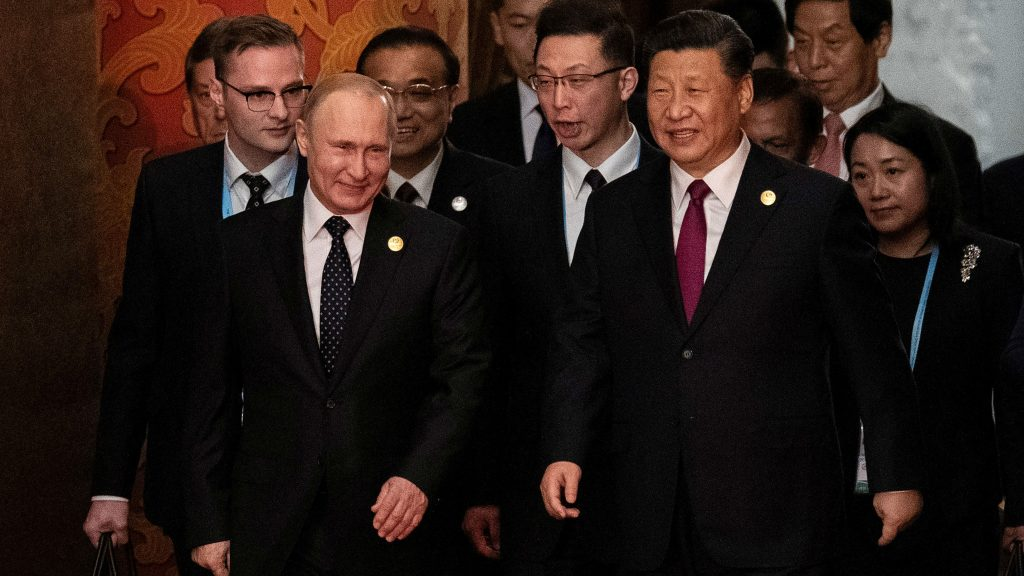
Korchunov also addressed Western concerns about the growing Chinese presence in the Arctic, saying Beijing does not pose any threat but serves as an example of good behavior.
“Recently, China has been heavily criticized for taking a greater interest in the Arctic, due to alleged threats from Beijing,” Korchunov said. “At the same time, it should be noted that this non-Arctic country refrains from military activities in the Arctic region, thereby helping keep low tension and a constructive atmosphere for interaction.”
Korchunov said Russia sees China as a strategic partner in the Arctic and noted that Chinese companies have invested tens of billions in LNG projects in the Russian Arctic.
“Chinese investors control about 30 per cent of NOVATEK’s Yamal LNG project and have also become the largest foreign co-owners of its second liquefied natural gas plant, Arctic LNG-2, in which they have a 20-per-cetn stake,” Korchunov said. “China is an important investor for the Arctic states.”
Russia is set to assume the chairmanship of the Arctic Council later this year and Korchunov laid out Moscow’s priorities for the next two years.
“The program of the Russian chairmanship reflects the urgent issues for the Arctic region and is centered around the sustainable development of the region in a balanced combination of environmental, economic and social components,” he said.
Related stories from around the North:
Arctic: NATO’s Arctic dilemma: Two visions of the Arctic collide as NATO and Russia flex muscles, Eye on the Arctic
Canada: Experts warn of potentially ‘deadly’ great power games in the Arctic, Radio Canada International
China: China, Russia singled out in new U.S. Arctic defense strategy, Eye on the Arctic
Denmark: Pompeo to talk Arctic at upcoming meeting with Danish Foreign Minister, Eye on the Arctic
Iceland: Nordics should aim for common approach to China’s Arctic involvement says report, Eye on the Arctic
Norway: Increase in NATO scrambled jets from Norway, The Independent Barents Observer
Russia: Russian navy conducts major manoeuvres near Alaska, The Associated Press
Sweden: Sweden’s FM calls for more EU involvement in Arctic as country hosts EU Arctic Forum, Radio Sweden
United States: New U.S. Arctic strategy focuses on ‘day-to-day competition’ with Russia and China, Eye on the Arctic

